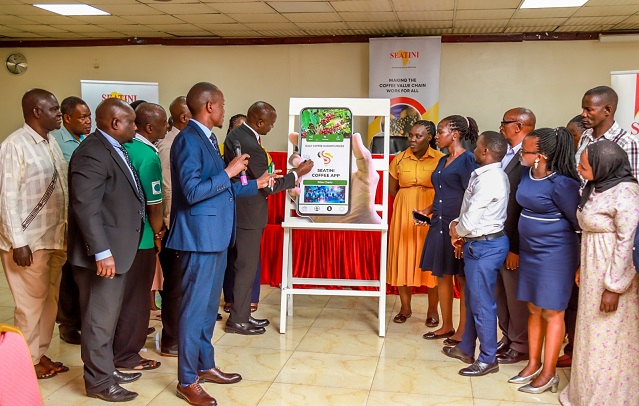
Kampala, Uganda | THE INDEPENDENT | Stakeholders have called for urgent reforms and investments to build a resilient and equitable coffee sector in Uganda, as price volatility and structural weaknesses continue to undermine the country’s ambitions to become a global coffee powerhouse.
This came during a hybrid multi-stakeholder dialogue held on July 8, 2025, in Kampala, under the theme “Building a Resilient and Equitable Coffee Sector: Addressing Price Volatility and Structural Vulnerabilities.” The event, organised by SEATINI Uganda, brought together policymakers, farmers, cooperatives, academics, and private sector actors.
Delivering the keynote address, Bohela Lunogelo, executive director of the Economic and Social Research Foundation (ESRF), underscored the need to adopt a comprehensive model to manage coffee price volatility.
He emphasized the importance of value addition, investment in local processing, tax incentives, climate-smart agriculture, and gender-inclusive policies.
“We must strengthen farmer cooperatives, expand into fair trade markets, and promote agroforestry programmes that support sustainability,” Lunogelo said.
Herbert Kafeero, programmes and communications manager at SEATINI Uganda, highlighted the need to boost domestic consumption, improve value addition beyond the traditional 60kg bag model, and address long-standing vulnerabilities in the coffee value chain.
“We have taken some strides, but we are not yet there. Uganda must wake up this sleeping giant,” Kafeero said.
At the same event, officials announced the launch of the new SEATINI Coffee App, now available on Google Play Store, to improve access to information for value chain actors.
In similar engagements officials from the Ministry of Agriculture have reaffirmed the government’s commitment to the Coffee Roadmap, which aims to produce 20 million 60kg bags and generate USD 1.5 billion annually by 2030.
However, experts acknowledge persistent challenges such as high production costs, limited extension services, and market access hurdles, especially under new EU trade regulations.
A high-level panel discussant called for strengthening institutional frameworks, deepening financial access for smallholder farmers, and leveraging digital platforms to increase market participation.
The dialogue also called for multi-sector collaboration, policy coherence, and investment in inclusive systems that guarantee fair prices and sustainable livelihoods for Uganda’s 12 million coffee-dependent households.
 The Independent Uganda: You get the Truth we Pay the Price
The Independent Uganda: You get the Truth we Pay the Price





